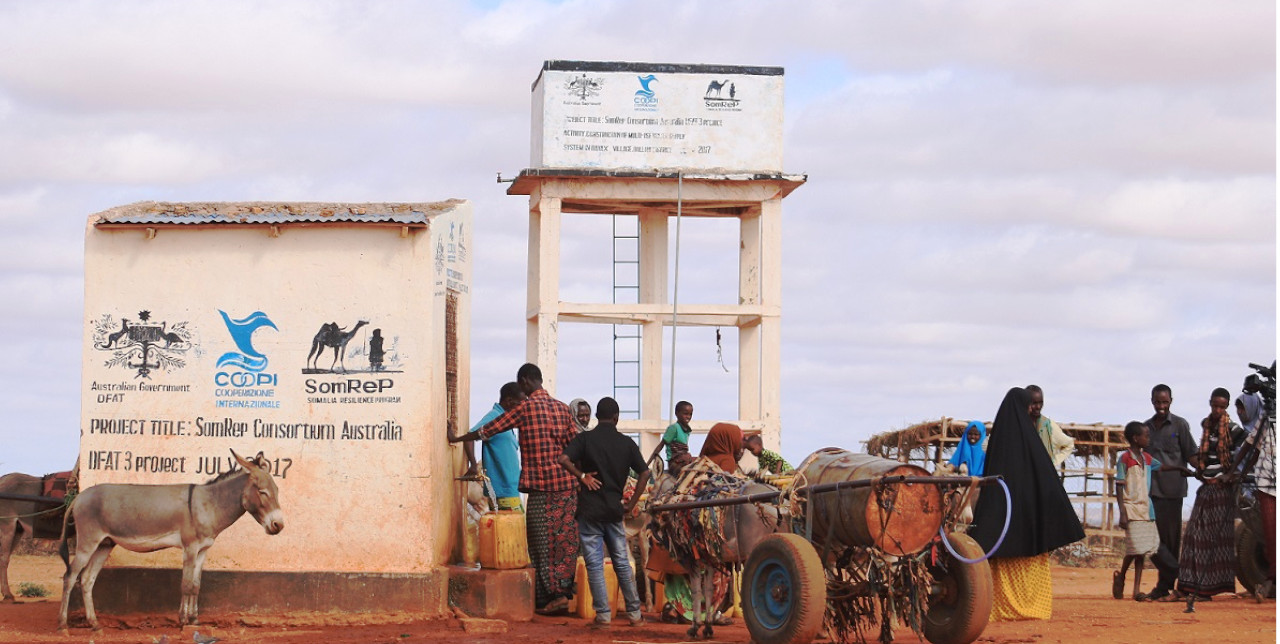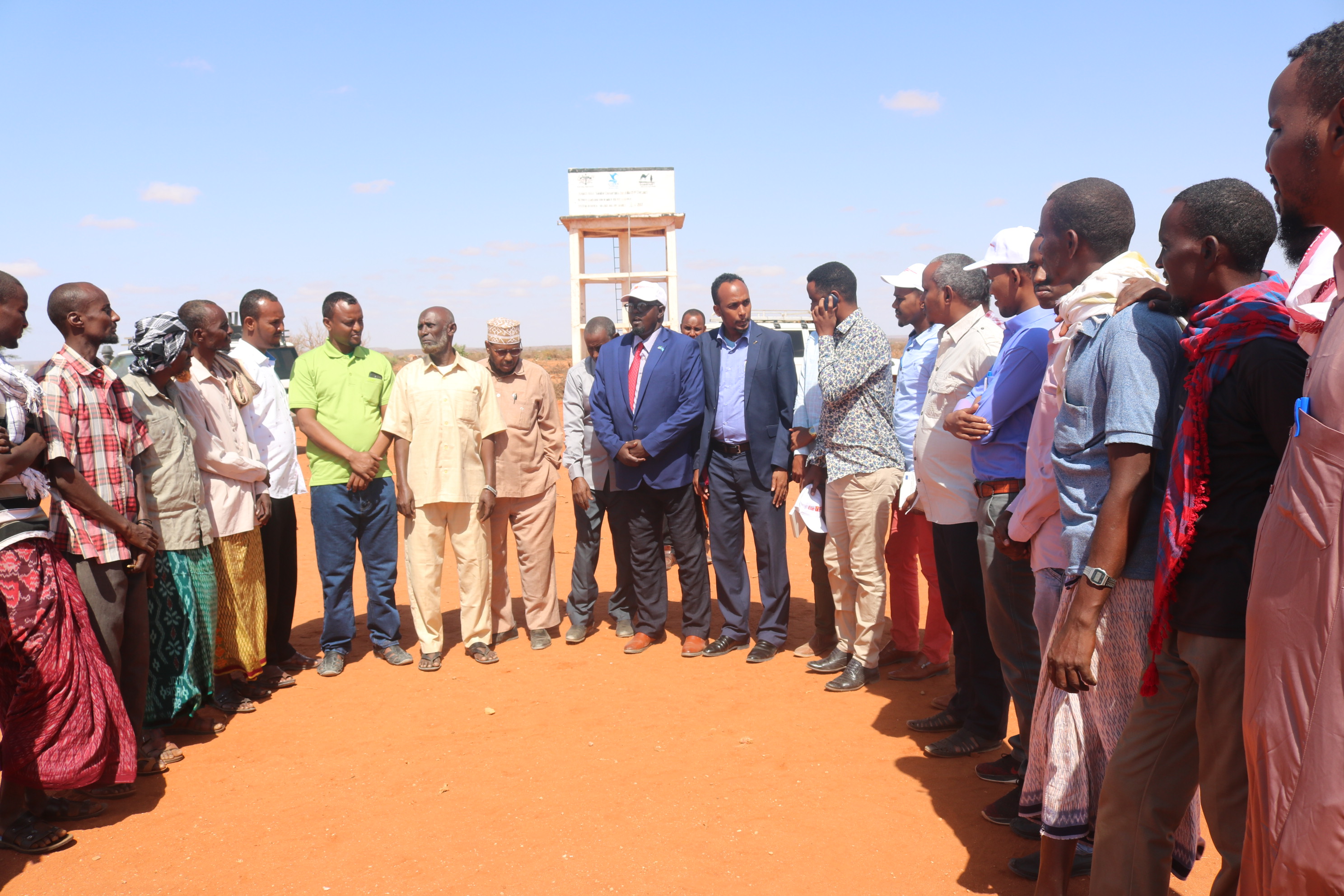31-03-2020 | di COOPI
Somalia. Focused training on water management reduces stress and conflicts
Abdi Farah, aged 69, lives in Beeritir – Somalia - an agro-pastoral village that depends on agriculture for its survival. He is one of the beneficiaries of the program “Enhancing resilience in Somalia”, financed by Australia Department for Foreign Assistance and Trade, implemented by COOPI through the Somali Resilience Programme (SomReP). Thanks to COOPI's intervention, he became a member of Beeritir Water Management Committee (WMC).
He recalls a time when sustainable management of water resources (including the provision of safe and reliable supplies for drinking water and irrigation, adequate sanitation, protection of aquatic ecosystems and flood protection) was an enormous challenge for his community. He says: “Our village is highly dependent on rainfall and prone to droughts. We suffered a lot during the dry jilal and hagaa seasons. In 2016, we had to contend with a long drought during which many inhabitants suffered acute watery diseases such as cholera. We lost a lot of livestock heads and the yields from our farms were extremely low to the extent that many people gave up farming and moved to internally displaced persons (IDP) camps in search of humanitarian assistance. Generally, there was no central system to regulate the water supply and its consumption in the village and this frequently led to conflicts.”
He adds: “Our main water source was the River Dawa, which is 6 km away. Our women, who did the water fetching, had to contend with that long-distance in the raging sun, facing risks such as gender-based violence or attacks from wild animals. Accessing and managing water resources was the biggest issue we frequently faced.”
To solve the problem, COOPI provided financial and technical support to assist the residents of Beeritir through the construction of a Multi-Use Water Supply system, which comprised of shallow well equipped with a motorized pump, transmission pipeline, elevated storage tank and water points including a water kiosk and a trough for human and animal consumption. To enhance the system’s sustainability, a water management committee was established comprising 11 members, including 4 females, who were trained and supported in establishing by-laws aimed at governing the water resources.
WMC meeting with Jubaland Government officials
Abdi Farah says: “I was fortunate to be elected among 11 members tasked with the responsibility of managing our water systems. We were trained on operation and maintenance of the facility, leadership skills, equitable distribution of water, conflict management, environmental management, sanitation and acute watery diarrhoea. Since the training began, we started seeing significant improvements in our water supplies and reduced pressure on the environment. Water stress has reduced as more water is available even during lean seasons. Besides, we have seen a reduction in conflicts and displacement.”
To strengthen the group’s capacity to self-maintain the system, COOPI assisted the WMC to open a bank account with Dhahabshiil Bank. Here the Committee can spare the money collected from the water users, in order to invest it for the system’s maintenance and repair. In this way, the community’s water needs will be sustained over time and development within the community based on economic cooperation and functioning serve committees will be guaranteed.
“We usually charge I Birr for each 20-liter container. However, we do not charge the most vulnerable in the community, especially children, elders and disabled. During the last year, we were able to collect $1,320 for maintenance, which has given us a boost. The improved water supply has reduced the transportation headache and expenses we had before. We have seen farming yields and livestock health improve as a result of improved management, which has led to better incomes for our agro-pastoral community" he explains.
Nevertheless, despite the positive outcomes of this intervention, Abdi admits that some challenges have been faced anyway. Unfortunately, there have been cases where people broke the established laws. “Laws are clear to everybody and whoever does not abide by it has to pay a fine or do community work. Water is a scarce resource in our land, hence equitable usage of the resource is important to ensure availability for all. We aim to protect this resource from misuse.”
Abdi believes the intervention has brought a huge sigh of relief for the community and he is grateful for the opportunity he got to guide and protect his community. “Thank you COOPI, SOMREP and DFAT,” he appreciates.




 Somalia
Somalia
